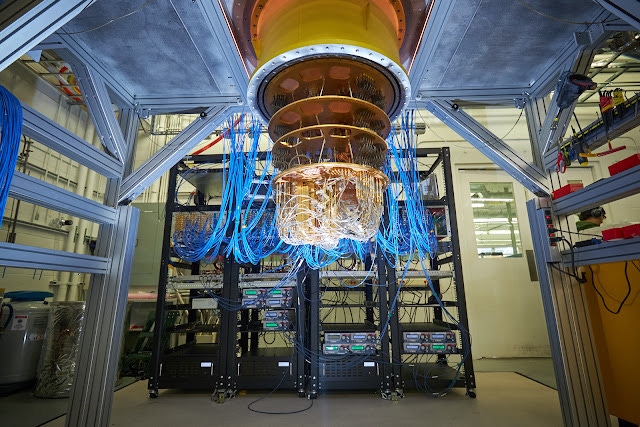
Connects decision-makers and solutions creators to what's next in quantum computing
Google Quantum Processor ‘Demonstrates Quantum Supremacy’
Researchers claim a quantum computer completed a task in 6 seconds that would take a classical computer 47 years

Google researchers have claimed a quantum computer has completed a real-life calculation in six seconds that would take one of the world’s fastest classical supercomputers 47 years.
They used Google’s second-generation 70-qubit Sycamore processor for the experiment, applying quantum effects to cancel out the electronic interference known as noise, which currently prevents quantum computers from outperforming classical computers.
The ability to carry out calculations classical computers cannot complete within a practical timescale is known as quantum supremacy.
The researchers said in a paper published on the academic paper distribution service acXiv: “Quantum computers hold the promise of executing tasks beyond the capability of classical computers. Noise competes with coherent evolution and destroys long-range correlations, making it an outstanding challenge to fully leverage the computation power of near-term quantum processors.”
Google first staked a claim to quantum supremacy in 2019 with a first-generation, 53-qubit Sycamore processor.
However, their results were soon called into question by rival quantum researchers.
This time they compared the results achieved using Sycamore against the world's first and fastest exascale supercomputer, Hewlett Packard Enterprise Frontier. Sycamore took 6.18 seconds while Frontier would take an estimated 47 years.
Adding more qubits to a quantum computer theoretically increases its power exponentially but dealing with the additional noise makes them challenging to scale. The techniques described in the paper could suggest one way to manage noise as quantum computers scale up.
The researchers said in the paper: “After estimating the needed computation resources and achievable fidelity bound for improved classical methods, we conclude that our demonstration is firmly in the regime of beyond-classical quantum computation.”
However, the machines were compared using a randomization task which is known to favor quantum computers over classical computers.
About the Author(s)
You May Also Like
.png?width=100&auto=webp&quality=80&disable=upscale)
.png?width=400&auto=webp&quality=80&disable=upscale)




